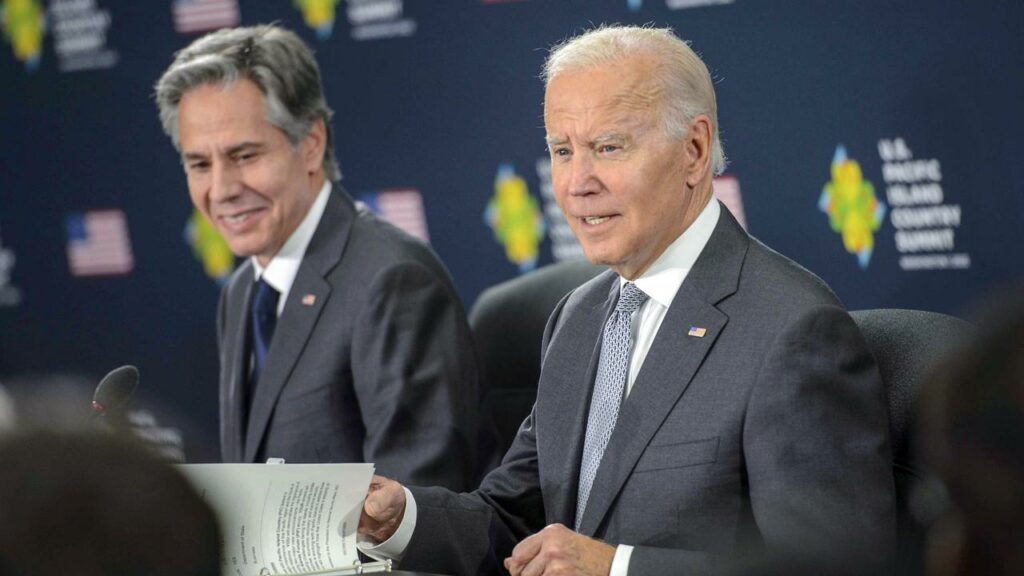Biden vows to address Pacific island needs
Michael Martina and David Brunnstrom |

US President Joe Biden, his administration pledging to help stave off China’s “economic coercion,” has promised Pacific island leaders to work harder with allies and partners to address their needs.
After a two-day Washington summit, the United States and leaders and representatives from 14 Pacific island states issued a joint declaration resolving to strengthen their partnership and saying that they shared a vision for a region where “democracy will be able to flourish.”
Those endorsing the document included the prime minister of the Solomon Islands, Manasseh Sogavare, whose government had earlier indicated it would not sign the declaration, heightening concerns about his ties to China.
The summit was the first time the United States has hosted so many leaders of a region it has considered a maritime backyard since World War II but into which China made steady advances.
Biden pledged “to more effectively coordinate with our allies and partners around the world to better meet the needs of the people across the Pacific.”
He vowed to make a priority of strengthening the US partnership with the island countries and help them address the “existential threat” posed by the climate crisis, their highest priority.
RAND Corporation Indo-Pacific analyst Derek Grossman said Washington had let ties with the region languish for decades, but the summit showed this had changed.
“We are still all working from, generally speaking, the same sheet of music, which is we don’t want the Chinese establishing a military foothold in the region, and we don’t want them corrupting the institutions of the region,” he said.
Biden made no mention of China in brief public remarks but said: “The security of America, quite frankly, and the world depends on your security and the security of the Pacific islands.”
Chinese foreign ministry spokesperson Mao Ning, responding to a question on Biden’s remarks, said on Friday that China had an “open attitude” towards countries wanting to strengthen cooperation with Pacific Island countries.
However, Mao emphasised that these countries should not be used as pawns in competition between great powers.
“We hope the US side can sincerely and whole-heartedly provide support to the Pacific island countries in responding to climate change and realising vigorous development, rather than using cooperation as cover to engage in geopolitical chess games,” Mao said during a regular media briefing in Beijing.
Earlier, Washington released its first strategy for ties with Pacific island nations, citing urgent climate challenges and heightened geopolitical tensions.
“Increasingly, those impacts include pressure and economic coercion by the People’s Republic of China, which risks undermining the peace, prosperity and security of the region, and by extension, of the United States,” it said.
The summit declaration said Washington would work with the island countries through the Pacific Island Forum, where it is a dialogue partner, saying the group had an important role to unite the region. China earlier this year failed to split 10 of 18 forum members into a separate security and trade deal.
The White House said the US would invest more than $US810 million ($A1.25 billion) in expanded programs to aid the islands. It includes a previously announced 10-year $US600 million aid request to Congress to build climate resilience and maritime security for the island states.
Washington plans to begin talks soon with Papua New Guinea on a defence cooperation agreement, the White House said.
It has also agreed to provide $US2.8 million to step up FBI training with Pacific islands, including in 2022 with the Solomon Islands, which alarmed the United States and its allies earlier this year by signing a security deal with China.
The declaration committed to forging new ties to improve maritime security and combat illegal fishing.
Reuters